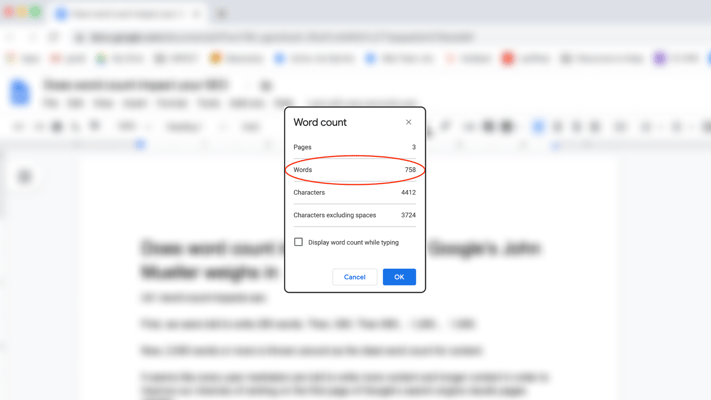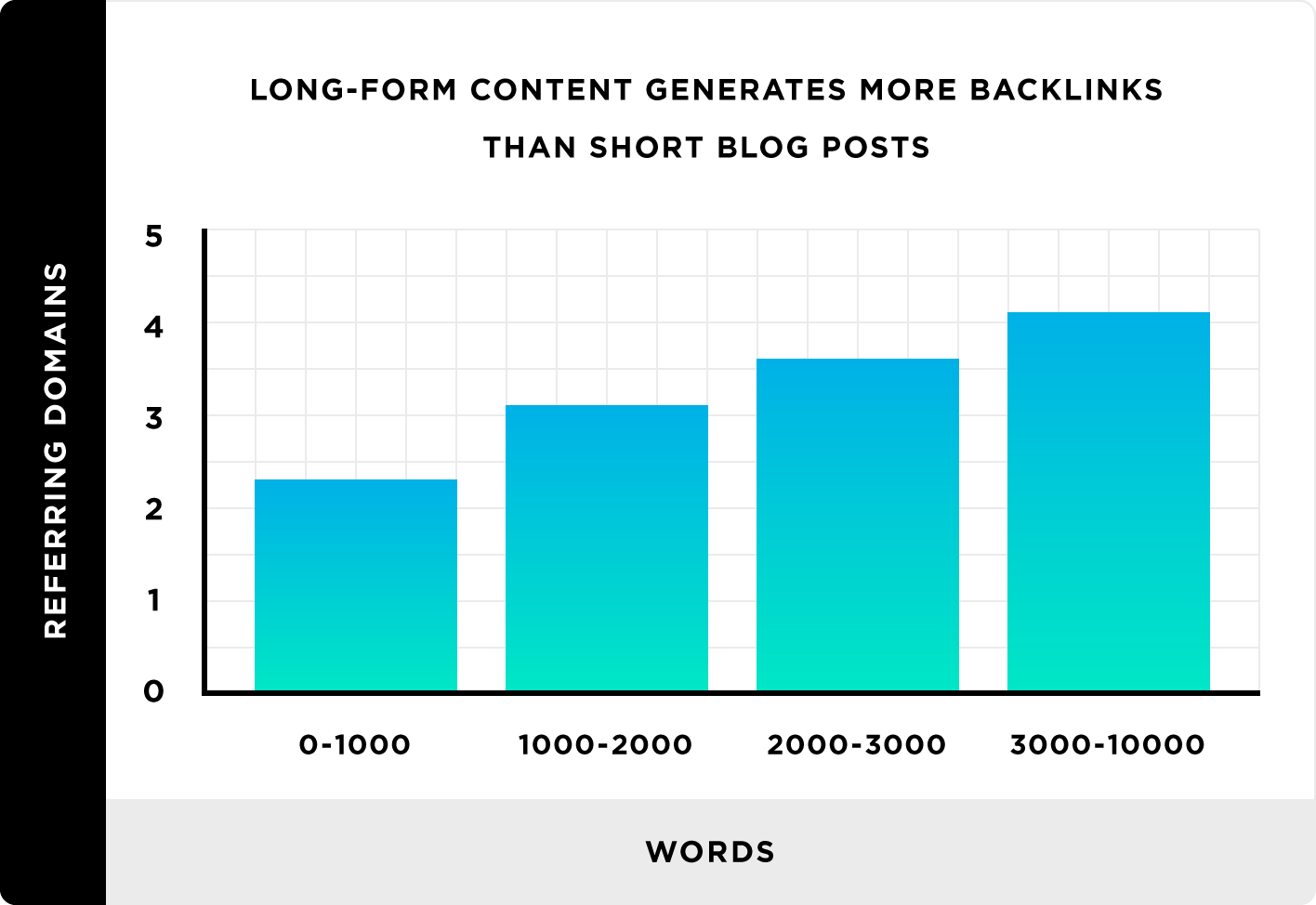Subscribe now and get the latest podcast releases delivered straight to your inbox.
How does word count impact your SEO? Google’s John Mueller weighs in

Feb 14, 2020

First, we were told to write 250 words. Then, 500. Then 800… 1,200… 1,500.
Now, 2,000 words or more is thrown around as the ideal word count for content.
It seems like every year marketers are told to write more content and longer content in order to improve our chances of ranking on the first page of Google’s search engine results pages (SERP).
And, with each passing year, Google makes updates to its algorithm to keep us on our toes and guessing at the magic formula that would spit out a position one content piece.
But now, it seems that there is one thing you can remove from that non-existent formula. Word count.
In August 2019, Google’s Webmaster Trends Analyst John Mueller said word count is not a ranking factor.
So, what does this mean? Do we abandon all of the best practices that have been drilled into our brains over the years?
Just a few days ago, Mueller recently provided some additional insight. Earlier this week, he tweeted that simply matching the word count to top-ranking articles isn’t going to make your pages also rank first.
Having the same word-count as a top-ranking article isn't going to make your pages rank first, just like having a bunch of USB chargers isn't going to get you to the moon. But, I'm still tempted to buy some of those USB chargers...https://t.co/TIuJHwHufn
— 🍌 John 🍌 (@JohnMu) February 8, 2020
How does word count affect your SEO?
While it’s clear that there isn’t a specific, optimal number that guarantees high search results, does that mean word count really has no impact on your rankings?
Not necessarily.
Mueller said word count itself isn’t a ranking factor, but he didn’t say that word count doesn’t impact other ranking factors. Similar to how meta descriptions aren’t a ranking factor but can help influence the click-through rate from the SERP, which is a ranking factor.
Generally speaking, the higher the word count, the better the opportunity to answer the user’s search intent and the increase in opportunity for backlinks, which both are ranking factors.
A joint study by Backlinko and BuzzSumo found that long-form content gets more links than short blog posts:

This doesn’t come without a warning, though. Word count does not equate to quality content. Just because long-form content can provide you with the opportunity to write more doesn’t mean the additional content always needs to be written.
Roger Montti notes in a recent Search Engine Journal article that his publication’s “goal for being comprehensive or for reaching an arbitrary word count caused their content to become about something other than what they were targeting.”
If your long-form content is overwritten and goes off-topic, you could actually hurt your SEO because it doesn’t, in the end, relate to the relevancy of the user’s search.
How to write content that will rank
Google’s ultimate goal is to “provide users with the most relevant result for their query.”
“Don’t shoot for a particular word count — just make sure you cover a topic in full. Whether that takes 500 words or 10,000, the key is that you are creating the best resource available for your target keyword.”
Ultimately, you want to write to answer the user’s question or intent for their search.
If you’re looking for best practices in regards to a specific number, though, I always recommend aiming for at least 750 words for content that isn’t list or definition driven because it will provide you with enough room to answer questions thoroughly and include meaningful, appropriate links.
When you have list articles — like a how-to article — or articles defining terms or trends, you can go even shorter because getting to the point and providing the reader with the information they are looking for is the most important thing you should do.
When a topic calls for more information, you should provide it. The majority of the content my team reviews is between 1,200 and 3,000 words for blog articles and more than 8,000 words for pillar pages.
The number one piece of advice we always give is “write until you’re done.”
And it seems that Google agrees.


Order Your Copy of Marcus Sheridan's New Book — Endless Customers!